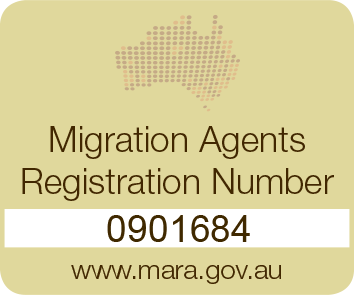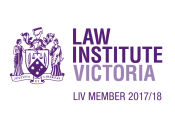Thinking about lodging a Partner Visa application (or already have) and concerned that there are issues which may cause a partner visa refusal?
In this week’s blog, we’ll explore some of the more common issues facing Partner Visa applicants, that may cause your visa to be refused, and what to do if you’re faced with any of them.
We’ll be covering:
- Not meeting the requirements of Schedule 3 – i.e. when you’ve applied for a Partner Visa off a Bridging Visa or when you’ve been unlawful.
- Applying for a Partner visa when you have failed the “Character Test”
- Your Sponsor has criminal convictions
- You have serious health issues
- You experience a relationship break up after you’ve lodged your application
- You experience domestic violence
I. Applying for a Partner Visa Onshore (Subclass 820) as the holder of a Bridging Visa, or as an “unlawful non-citizen”.
If you are the holder of a bridging visa, or you do not hold any type of visa(i.e. you are unlawful) when you apply for an Onshore Partner Visa, Subclass, there are hurdles to jump over before you will be granted a Partner Visa.
Why would someone be a Bridging Visa holder when they apply for a Partner Visa?
There are a few common scenarios that come to mind immediately (in reality there are lots of scenarios) which result in partner visa refusals. These are:-
- You have applied for another visa and the visa you held at the time of that application has expired, and you were granted a Bridging Visa at the expiry of the visa whilst you waited for your visa application to be processed.
- Your visa was cancelled and you were granted a Bridging Visa E following the cancellation.
- You had a visa application refused and you have appealed the refusal.
- You became unlawful and were granted a Bridging Visa E when you reported yourself to the Department of Home Affairs (DHA)
I’ve let my visa lapse and I am now unlawful – can I still apply?
If you have allowed yourself to become unlawful, you can still apply for a Partner Visa – however, if you have been unlawful for more than 28 days you will have to meet something called “Schedule 3”.
I’ve had a visa refused, can I still apply for a Partner Visa?
Provided the visa that was refused was not a Partner Visa application, you can still apply for a Partner Visa in Australia.
Normally you would be barred from applying for most other visas onshore if you’ve had a visa refused – by section 48 of the Migration Act, however, there is an exception to this rule for Partner Visa applications.
If you are holding a bridging visa when your visa is refused, you will also have to meet the Schedule 3 requirements (keep reading below to find out how).
What can I expect when I apply for a Partner Visa as the holder of a Bridging Visa?
You will have to meet something called the Schedule 3 requirement if you have held your bridging Visa for more than 28 days.
What is Schedule 3?
If do not hold a visa at the time of application for your Subclass 820 Partner Visa (i.e. you hold a bridging visa or have been unlawful for more than 28 days), your Partner Visa cannot be granted, because you do not meet the requirements of Schedule 3 unless you can establish:
- there are compelling and compassionate circumstances affecting an Australian citizen or,
- an Australian Permanent Resident,
- of sufficient magnitude to cause the decision-maker (i.e. the case officer) to waive the Schedule 3 requirements
It is not easy getting the Schedule 3 requirements waived!
What sort of events would convince a case officer to waive the Schedule 3 requirements?
Previously, a long relationship (in excess of two years) was sufficient to secure a waiver, however this is generally no longer the case, unless there are special aspects of the relationship such as extreme dependence or serious illness.
Some successful Schedule 3 waivers have occurred where:
- The sponsoring partner was significantly dependent on the via applicant either financially, psychologically or physically (e.g. where the sponsor suffers from a significant disability).
- There are Australian children of the relationship (although a Tribunal member recently held that the child was conceived for the purposes of overcoming Schedule 3 (a definite legal error our view, as the Tribunal did not consider the best interests of the Australian child, which it is bound to do).
- There are Australian children of the relationship and the visa applicant has Family Court orders with respect to the children – and the couple has broken up.
- The sponsor had Australian children from a previous relationship and the visa applicant had either adopted the children or had Family Court orders compelling financial or other support from the Partner Visa applicant
- The applicant’s skills are critical to an Australian business or an Australian institution.
There many other examples of compelling and compassionate circumstances, not listed above.
It should be noted that “getting over” Schedule 3 is no walk in the park – in fact it is one of the more difficult jobs in immigration law – and in the current environment, it is becoming more difficult.
One thing you should know is that a recent case held that the compelling and compassionate factors which are relevant to a potential Schedule 3 waiver can arise at any time from the date of application to the date of the decision.
Keep in mind too that if your Partner Visa application is refused because the Schedule 3 requirements have not been waived, compelling and compassionate circumstances can still arise (and be taken into account) anytime up to the date of the Tribunal hearing.
For example, even if pregnancy is not considered sufficiently compelling to waive the Schedule 3 requirements at the time your visa is refused, an Australian child at the time of the Tribunal hearing is usually considered to be compelling by the Tribunal.
If you are faced with a Schedule 3 situation, you should engage a lawyer or registered migration agent with significant experience in successfully tackling Schedule 3 issues.
Case study:
G called us in a terrible state. He had been unlawful in Australia for several years, and he was increasingly stressed by his unlawful status and wanted to rectify matters.
He had a longstanding partner who was pregnant. His partner told us that she was happy to sponsor him for a Subclass 820, Onshore Partner Visa.
After collecting the relevant evidence, we lodged the Partner Visa application, and almost immediately received a so-called “Schedule 3 Notice” – ie we needed to provide information to the DHA case officer demonstrating why our client met the requirements of Schedule 3 – and if he did not, why the requirement should be waived.
Our client clearly did not meet the requirements of Schedule 3 because he had been unlawful for more than 28 days. We wrote extensive submissions explaining our client’s situation.
In particular, we emphasised the impending birth of our client’s child and the fact that our client’s partner was at that stage financially and emotionally dependent upon him – and could not travel because it was too late in the pregnancy to do so.
Following our submissions, our client’s partner gave birth to their first child and we updated the DHA by providing the birth certificate as soon as we had a copy.
The Subclass 820 visa was granted, followed by the Subclass 801 Permanent Partner Visa shortly afterwards. We’re happy to write that our client now has two children and is an Australian citizen.
II. You’ve applied for a Partner Visa, and you have criminal convictions.
If you have convictions and have been sentenced to prison sentences in excess of 12 months duration (either a single custodial sentence or several added together) you will fail the Immigration Minister’s “Character Test” under Section 501 of the Migration Act. It doesn’t matter if the custodial sentence was suspended.
Concurrent sentences are added up as if they were not concurrent – i.e. if you are sentenced to 2 x 1-year sentences to be served concurrently, the Minister will regard that as a two-year sentence.
There is a high probability you will get a partner visa refusal.
Partner visa refusal under the character provisions.
If you do fail the character test, the Minister may or may not refuse your visa application under the “character” provisions of the Migration Act, depending upon the nature of the offences. Should you be threatened with a refusal of your visa application because of your criminal convictions (we call it being “charactered”), you will need to provide the Minister (the DHA) with comprehensive written submissions outlining why your character issues should be overlooked.
If the convictions are once-off or happened a long time ago (more than 10 years), or are minor in nature (eg minor traffic convictions), you may still be threatened with visa refusal under the character provisions, but this is less likely.
If however, you have multiple traffic offences such as drink driving offences, the Minister is equally able to “character” you on the basis of “pattern of behaviour”.
Even if you don’t have any criminal convictions, you can be “charactered” by the Minister for activities such as associating with criminal gangs.
Notice of Intention to Refuse
Normally, the Minister must give you notice that he is considering refusing your visa application under the character provisions of the Act.
If the minister or his delegate (i.e. the case officer) believes you do not meet the character test, you will receive a Notice Of Intention To Consider Refusal of your visa application (NOITR). The notice will outline why the delegate thinks you do not meet the character test. The notice will request your response to the allegation within a prescribed amount of time
If your visa application is refused because of character, you may appeal the decision to the Administrative Appeals Tribunal.
Have look at one of earlier blog posts about the character provisions here.
Being threatened with a partner visa refusal because of character issues does not necessarily lead to a refusal of your application – however if you are threatened with such a refusal, it is important that you obtain expert legal advice from an experienced immigration lawyer. If you have your visa application refused under Section 501 of the Migration Act, it is unfortunately unlikely that you will ever be granted a visa to enter Australia again.
Case study:
BJ had applied for a Partner Visa, and presented to us with a Notice of Intention to Consider Refusal of his visa application, under Section 501 of the Migration Act. BJ’s criminal record included a two-year sentence for grievous bodily harm, which had occurred approximately 11 years before his visa application.
After collecting and collating the appropriate evidence with respect to his good character, and subsequent emotional maturation since his offences (and addressing the Minister for Immigration’s Direction 79**), his visa was granted after a waiting period of approximately 18 months (in addition to the usual processing time)
(**Direction 79 is a direction which must be followed when addressing visa cancellation or the visa refusal under Section 501 of the Migration act. It is a very lengthy document, written in serious legalese, but the points the Minister makes in the Direction must be properly addressed in the written submissions in response to a Notice of Intention to Consider Refusal, or Notice of Intention to Consider Cancellation.)
Have a look out our blog post about Direction 79 here
III. My partner who is sponsoring me for the Partner Visa, has a criminal history.
In 2019, the rules for sponsoring partners changed, and now an application by a Sponsor to a Partner Visa application may be refused, if the sponsor has a criminal record, with respect to specific offences under the Migration Act.
Offences include domestic violence, other violent offences, child sex offences, and other offences against children.
Sponsors now have to provide police certificates, and must consent to any convictions being disclosed to the Partner Visa applicant. If the Sponsor’s criminal convictions are significant, the application for Sponsorship may be refused.
Recently, we have heard of several Sponsors having their application for sponsorship refused because of convictions involving domestic violence and/or offences against children.
If a case officer decides that the Sponsor’s criminal record is significant, the Sponsor will be put on notice by way of an invitation to respond to “adverse information”. Should you receive such an invitation, we recommend that you contact an experienced immigration lawyer, to prepare an appropriate response for you, without delay.
IV. I have serious health issues.
Fortunately, Partner Visas have a provision for a Health Waiver. This means that even if you fail the health requirement, it may be overlooked by the DHA case officer if you meet certain requirements.
We have written extensively about Health Waivers on our blog, and you can find the article here. It contains all the information you need to know about health waivers, but if you need additional information, please contact us.
We also have a lovely health waiver case study, which you will find here.
V. I have lodged a Partner Visa, and now my partner and I have broken up.
Fortunately, we have also recently written an extensive article about breakups. Please find it here.
VI. I have lodged a Partner Visa, and I have been subject to domestic violence by my partner
For those of you affected by Domestic Violence, we have some guidance for you here. We urge you to read it.
What happens if my application is refused?
If you experience a partner visa refusal, you can lodge a review application at the Administrative Appeals Tribunal (AAT).
If your visa application is refused on general grounds, including because of your sponsor’s criminal convictions, you must lodge the application with the Migration Review Division of the AAT within 21 days of the refusal notification date. If your application is refused under S.501 of the Migration Act, you must lodge your review application in the General Division of the AAT.
We advise you to contact an Immigration Lawyer or Registered Migration Agent for advice without delay if you have received a refusal notice.
Read our Partner Visa FAQ’s and if anything in this has raised concerns for you, please contact us without delay on +61 3 95735200, or complete our contact form here.

 Points Test
Points Test
 Book Now
Book Now 


